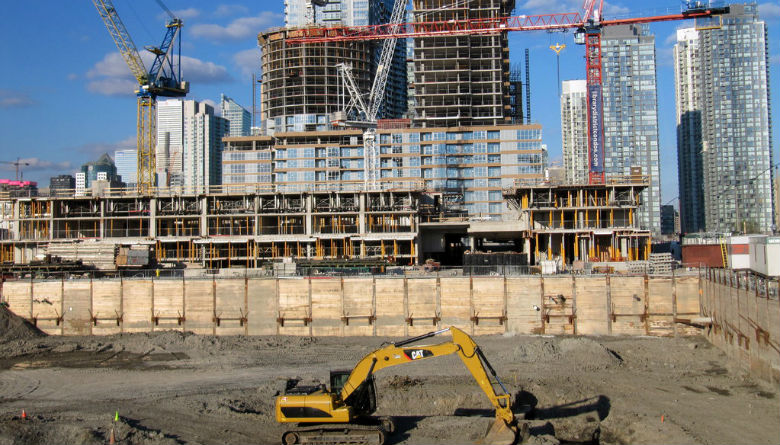It’s here, the great disaster Canadians have been whispering about for some years. The dreaded “housing bubble” has arrived in Toronto and vicinity, says David Rosenberg, an economist famous for spotting such things.
Now some housing bubbles are small, some middling-sized, others…, well this one is in the “other” category.
Mr. Rosenberg, the Chief Economist for investment firm Gluskin Scheff & Associates, characterizes the rise in Toronto-area housing prices as “a bubble of historic proportions.”
Economists, like weather forecasters, get paid despite making predictions of sunny days that leave you all wet. What is important for both professions is correctly predicting one very large storm. Mr. Rosenberg correctly spotted the enormous housing bubble in the US in 2008 that led to the Great Recession. Is it time to pull out our economic umbrellas and prepare for a financial downpour?
Nationally average house prices are up – but by a manageable 2.2% year over year – taking the typical home price in Canada to $499,721. That, however, is small beer compared to the average price of homes in Toronto and the surrounding area where the average price is up a whopping 33% since last March, according to the Toronto Real Estate Board.
In plain terms, the average Toronto area house will now set buyers back $916,567.
Such numbers are the stuff of heavy clouds indeed, so much so that they are cast a shadow over Justin Trudeau’s “Sunny Ways” government and the Federal Finance Minister, Bill Morneau, who wants a special meeting with Ontario’s provincial government as well as officials from the City of Toronto to devise a plan to address housing affordability.
All of this attention, however, suggests the bubble Mr. Rosenberg speaks of may not be as “historic” as he indicates, given that one key feature of truly historic bubbles is that few people see them, and fewer people in government try to do anything to deflate them.
That is not the case now in Canada. To safely bring the pressure in the Toronto real estate bubble to manageable levels, Canadians have a variety of tools at their disposal, tools that Bloomberg news concisely listed in a recent story as
- Taxing foreigners
- Boosting supply
- Taxing empty houses
- Control rents
- Support buyers
- Raise interest rates
- Impose new capital gains on investment properties
True, the merits of these tools are suspect.
There is little evidence the foreign investment is driving prices in the Toronto area. Nor is there an abundance of vacant homes, as in Vancouver. And it would be a brave politician indeed who stood up and declared a willingness to use taxpayers’ money to subsidize folks buying million dollar homes. Raising interest rates is a decision of the Bank of Canada, an independent player in the financial market, and one that is not likely to stoke a crisis by further reducing affordability.
Imposing rent controls would target the existing rental market – wrong target!
That leaves enforcing capital gains taxes on investment properties that are flipped, which would require administrative agility from the CRA that is likely to be tried. The impact will take time to flow through to the market.
Then there is boosting supply.
Indeed, like a voice from the wilderness, the Frontier Centre for Public Policy issued a study in June 2016 that makes it abundantly clear that land use policies that seek to contain cities in tight geographical areas (think Ontario Greenbelt) negatively impact the affordability of middle-income housing; it reduces supply, drives up prices for existing stock faster than the pace of income growth and leaves middle-class families to cope with life in under-sized condos or commuting for hours to homes in distant cities, increasing prices in those places too (Hamilton, Kitchener, Barrie, Cobourg, all are good Ontario examples). Opening up the Greenbelt to development will increase supply and temper the rise in house prices.
This too will take time to flow through to the market.
Is there a housing bubble in Toronto and surrounding areas? The evidence indicates there is. Is it “historic,” as Mr. Rosenberg claims?
It shouldn’t be. It comes as a surprise to few. The very fact that the “bubble” is evident, that politicians, bankers and media-types are all talking about it, and that there is clearly going to be changes made to increase supply, however long that takes, should act as a natural brake on the housing accelerator that is driving prices to unsustainable heights.
Buyers are now in the driver’s seat. They have control over how much more gas to give to the engine inflating Toronto’s housing bubble.
Pursuit.ca


